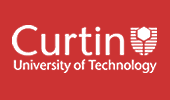
172499 v.5 Bachelor of Science (Physics)BSc(Curtin) IntroductionMeets the needs of physicists who intend to work in industry or government organisations, for example, as materials characterisation scientists, in atmospheric and marine sciences as research assistants, environmental officers and meteorologists and in hospitals as medical physicists. Graduates find occasional openings in such diverse areas as Antarctic research, patents examination, satellite remote sensing, astronomy, industrial hygiene, data analysis and forensic science. Students considering a career in information technology, business, the scientific civil service and data processing will find a background in physics particularly useful. For those wishing to become teachers, the course provides an initial qualification prior to undertaking a Diploma of Education. Course Entry Requirements/PrerequisitesPhysics and Calculus or Applicable Mathematics. Chemistry or Information Systems is desirable. If Introductory Calculus is not studied in Year 11, a bridging unit is required. Specific RequirementsThe STAT is not accepted for entry to this course. Well-performed students with high aggregates or other evidence of academic achievement who do not meet formal entry requirements may still be considered. Enquiries should be directed to the Course Coordinator / Head of Department. Recognition of Prior LearningApplications for recognition of prior learning are assessed on an individual basis. Duration and AvailabilityThis course is available on a full or part-time basis. Only a limited number of units can be done externally. Most classes are scheduled during the day. Part-time students can only complete their degree by attending these classes. Full-time students cancomplete the degree in a minimum of 6 semesters (3 years). Two intakes are offered each year, in March and August. Prospective students should note that places may not always be available for the August intake. Course OrganisationIn the first year of the course students are required to take Contemporary Science 101, Science Communications 101, a Mathematics unit and a Statistics unit. Students also take Science Foundation Studies units in each semester of year one. The Science Foundation Studies units are to be chosen from disciplines other than their major field (for example, Environmental Biology, Chemistry, Biomedical Sciences or Resource Science). The remainder of the first year is made up of three major studies units. In each of years two and three of the course students do six major studies units and two minor studies units. The major studies provide students with depth in the discipline and professional accreditation in Chemistry/Physics/Mathematics and Statistics. The minor studies are chosen from a different discipline to the major. The final year includes a 50 credit project in the major. Additional Course ExpensesStudents may be expected to purchase a number of textbooks, readers and other vital study materials. In addition, students may also need to contribute some of the cost of consumables, which varies depending on the area of study. Special NoteN.B (Not for External Publication) Changes to the structure for 2005 have been made following the implementation of unified science first year in 2004. New Astronomy minor has been created. No new units have been created. New versions (revised syllabi) have been created for Physics 101 (302804) and Physics 102 (305415) for 2005.
Availability
The information displayed above refers to study periods and locations where the course is available for first time entry. Students are normally only offered or admitted to a course once. *The course itself may not be available either solely internally or externally but individual units may be offered in either or both of those modes. Prospective students should contact the Course Coordinator for further information. Click here for a printable version of this page |
 |
|||||||||||||||||||||||||||||||||||||||||||||||||||||||||||||||||||||||||||||||||||||||||||||||||||||||||||||||||||||||||||||||||||||||||||||||||||||||||||||||||||||||||||||||||||||||||||||||||||||||||||||||||||||||||||||||||||||||||||||||||||||||||||||||||||||||||||||||||||||||||||||||||||||||||||||||||||||||||||||||||||||||||||||||||||||||||||||||||||||||||||||||||||||